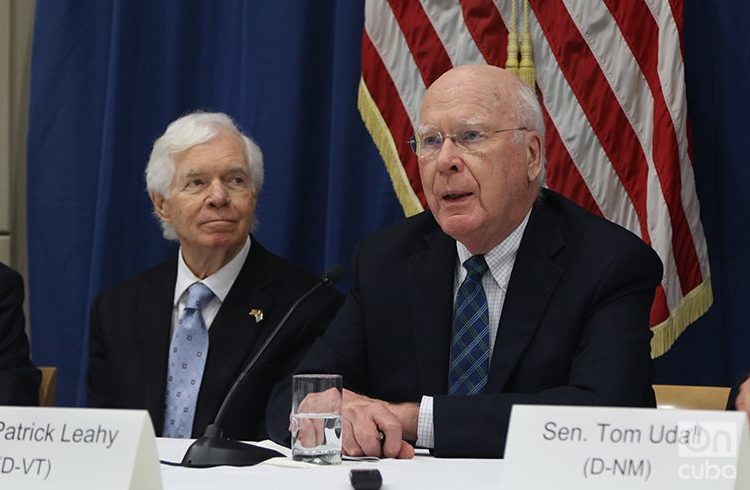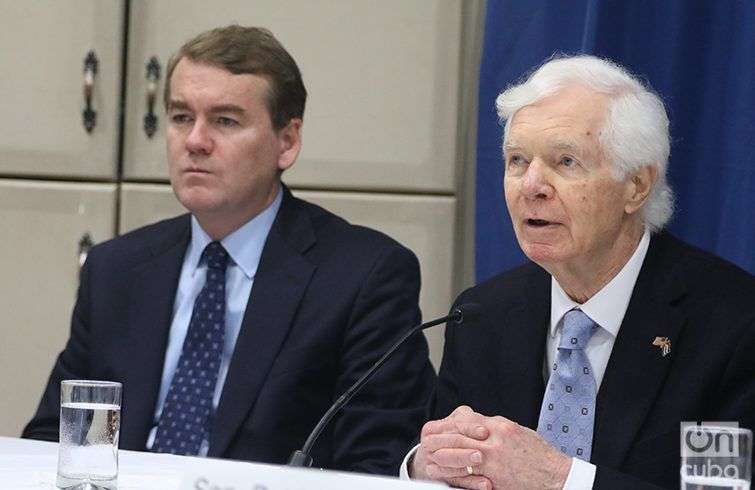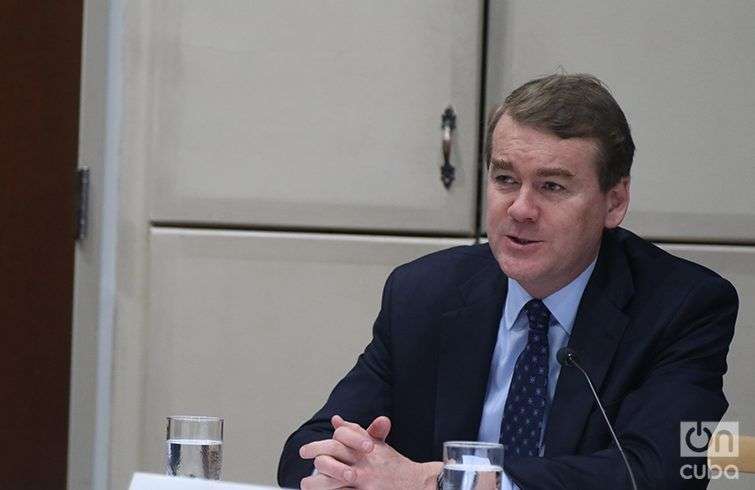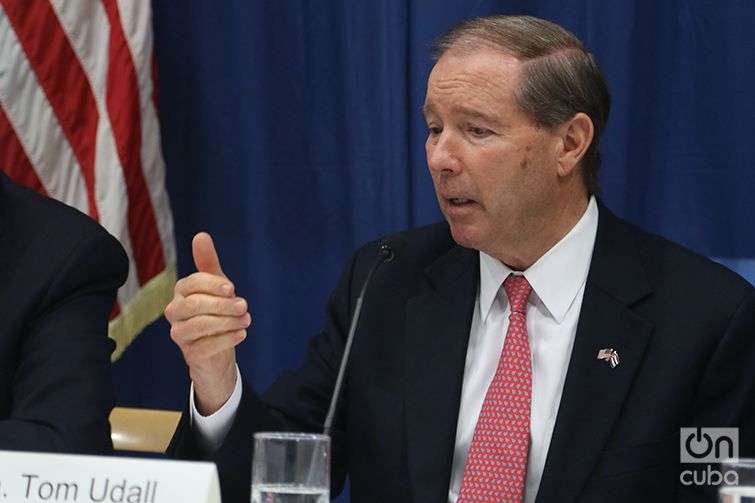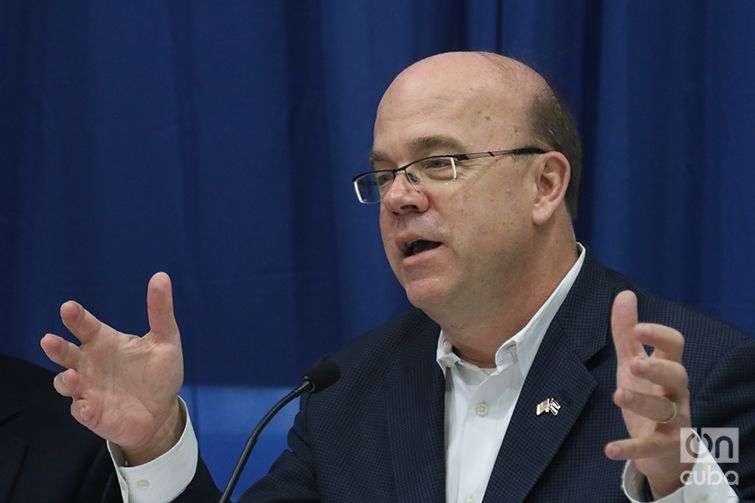The U.S. delegation of congressmen which ended its visit to Cuba this Wednesday said to the press that the advance in relations between the two countries “is inevitable.”
“I wouldn’t be today on one more trip if I didn’t believe it is like this,” said Senator Patrick Leahy (D Vermont). “Americans want that, the opinion in the community of businesspeople, academicians, scientists has changed…. I hope it is the same in Cuba,” he commented.
He was accompanied by William Thad Cochran (R Mississippi), Senators Tom Udall (D New Mexico) and Michael Bennet (D Colorado), and Representative Jim McGovern (D Massachusetts).
Leahy said it is not possible to return to “a 50-year failed policy” and affirmed that “the lifting of the travel ban and other restrictions is inevitable. The restrictions are going to be lifted; the embargo is going to be lifted. When will it happen? I don’t know. The sooner the better. Is it going to happen? Yes.”
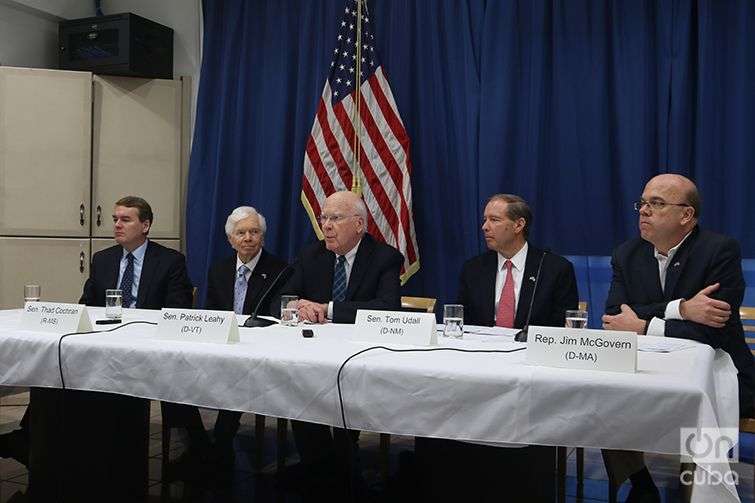
Cochran, meanwhile, affirmed that “there are openings, and winning implies taking risks.” Speaking of the expectations regarding Trump, he joked saying that “some say that we have a spontaneous president…. There will be active debates in Congress,” he forecasted.
McGovern said that there are “too many collaborations” taking place; on business, agriculture, academic exchange…. “I don’t know what Donald Trump will say or not say about the future U.S. policy on Cuba, but we are all expecting he will agree with us that rapprochement is better than isolation,” he said.
The Representative advanced that “there will be more collaboration, more memorandums of understanding, more areas in which we can reach an agreement and continue forward with this policy.”
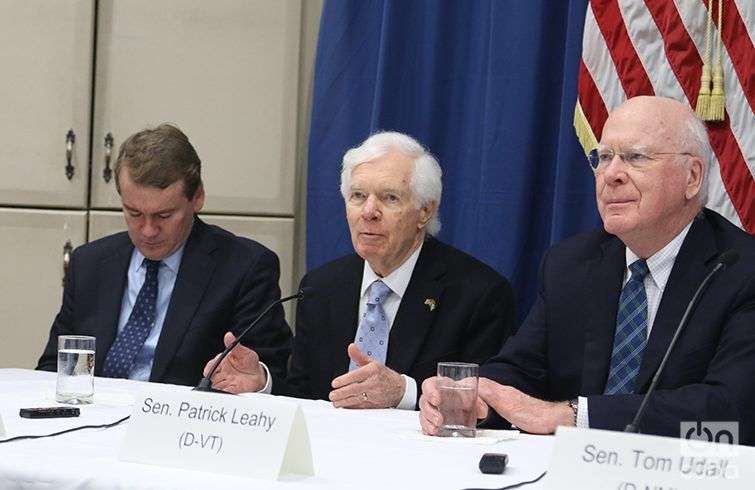
“The Cubans have been very wise in not answering every tweet or comment,” Leahy said. “Castro made it very clear that he wants the reforms to continue. We are in a new world…. We don’t forget the past, but we are looking toward the future,” he said referring to the meeting they had this Tuesday with the Cuban president.
Seven days after Trump’s inauguration, Raúl Castro made statements in the Dominican Republic regarding Cuba-U.S. relations. He gave two copies in English of this speech to the congressmen.
“He made it very clear: he wants us to continue,” Leahy insisted. “He will not stop: Cubans don’t want to stop. We don’t want to stop. The majority in Congress, from the two parties, want to continue. The movement is more significant in the United States now than ever before in my career in the Senate.”
Known as “the senator of the thaw,” Leahy said the relationship with Cuba was “a stone in the shoe” for a long time. “And I don’t want the stone to come back.”
“We have demands for Cuba, and they have demands for us. The key lies in negotiation,” he concluded.
A delegation of leaders of the biotechnological industry and medical research of Massachusetts traveled to the island with McGovern. They met with Cuban authorities and “have seen great potential for greater collaboration.”
This Tuesday, McGovern revealed, a cooperation agreement was also signed between Boston’s Northeastern and Havana universities to increase exchange between students.
Senator Thad Cochran presided this Monday over the signing of collaboration agreements between Cuba and the ports of Pascagoula and Gulfport, in Mississippi.
On Tuesday the delegation was received by President Raúl Castro in the Cuban government headquarters. Also present at the meeting for the Cuban side were Foreign Minister Bruno Rodríguez, Minister of Foreign Trade and Investment Rodrigo Malmierca and the general director for the United States of the Ministry of Foreign Affairs, Josefina Vidal.
TN: Quotes by U.S. congressmen and senators were translated from the Spanish.

